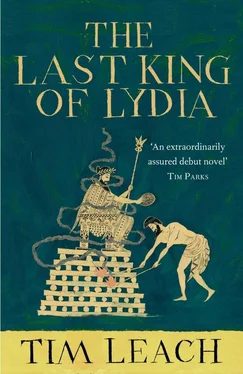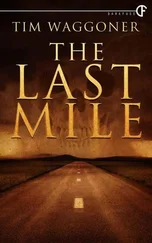Tim Leach - The Last King of Lydia
Здесь есть возможность читать онлайн «Tim Leach - The Last King of Lydia» весь текст электронной книги совершенно бесплатно (целиком полную версию без сокращений). В некоторых случаях можно слушать аудио, скачать через торрент в формате fb2 и присутствует краткое содержание. Год выпуска: 2013, ISBN: 2013, Издательство: Atlantic Books Ltd, Жанр: Исторические приключения, на английском языке. Описание произведения, (предисловие) а так же отзывы посетителей доступны на портале библиотеки ЛибКат.
- Название:The Last King of Lydia
- Автор:
- Издательство:Atlantic Books Ltd
- Жанр:
- Год:2013
- ISBN:9780857899200
- Рейтинг книги:5 / 5. Голосов: 1
-
Избранное:Добавить в избранное
- Отзывы:
-
Ваша оценка:
- 100
- 1
- 2
- 3
- 4
- 5
The Last King of Lydia: краткое содержание, описание и аннотация
Предлагаем к чтению аннотацию, описание, краткое содержание или предисловие (зависит от того, что написал сам автор книги «The Last King of Lydia»). Если вы не нашли необходимую информацию о книге — напишите в комментариях, мы постараемся отыскать её.
The Last King of Lydia — читать онлайн бесплатно полную книгу (весь текст) целиком
Ниже представлен текст книги, разбитый по страницам. Система сохранения места последней прочитанной страницы, позволяет с удобством читать онлайн бесплатно книгу «The Last King of Lydia», без необходимости каждый раз заново искать на чём Вы остановились. Поставьте закладку, и сможете в любой момент перейти на страницу, на которой закончили чтение.
Интервал:
Закладка:
He let his hand fall, and the women went forward into the river.
Some ran as fast as they could, hoping to outpace those behind them. Others worked carefully, moving more slowly on the fringes of the pack, splashing water against the knees of their rivals, defending their own exposed skin with the hems of their robes. Others seemed to ignore the contest entirely, and used the occasion as an opportunity to gather food; moving slowly, squatting over the water, hooking out fish that gasped and floundered in the shallow water.
The army cheered and shouted obscenities at the women as they ran. Their shouting almost drowned out the sound from the river, but occasionally, when the cheering died down for a moment, Croesus could hear the women in the water. He could hear them laughing.
They reached the far bank of the river, and for a moment Croesus found himself thinking that they might not return. That they might keep running, striking out to found some new country of their own, and leave the men to continue their wars without them. Croesus wondered what kind of a world that would be. Just for a moment, they seemed to hesitate on the far bank, on the brink of that new world, before they turned and began to run back towards the army. Out in front, by a short distance, was Cassandane.
In the water, the women had been equal; Cassandane had been forced to work harder than most, as many of the others went out of their way to try and push her into the water, given a rare chance to try and humiliate one of their betters. But she had dodged past them all, weaving through the crowd, running harder than the rest, until she regained the bank of the river, victorious.
Cyrus walked to his wife. He drew close, placing his hands to her sides. She looked up at him and said nothing. He let his hands run down her hips, knelt in front of her, and ran them down her bare legs. He cupped her knees for a moment then looked at his palms. Smiling, finding them dry, he lifted them high and showed them to the soldiers. Then he took his wife by the hand, and led her away to their tent.
Watching them, listening to the army howl their praise for their king, Croesus could not help but wonder about the performance he had just witnessed. How much was for show, and how much was genuine? He doubted if Cyrus himself even knew any more where performance ended and the truth began.
From the banks of the river, he saw Maia coming to him, her husband at her side. Isocrates, perhaps inspired by the king, had for once allowed himself to display affection in public, a single hand curled protectively around her waist.
‘I looked out for you, but couldn’t see you,’ Croesus said. ‘Did you succeed?’
‘Yes. Look,’ she said, and lifted her skirts to show her dry knees.
Croesus turned away, and she laughed. ‘Such a shy old man. We slaves can’t afford that Lydian modesty of yours.’ She turned to Isocrates. ‘What do you think? I couldn’t finish first. Some of the soldiers’ harpies are little more than girls, and they could outrun me. But I finished with my knees dry. What does that make me?’
‘Crafty and tricky, is what you are,’ he said.
‘Like your husband,’ Croesus said immediately.
Maia grinned. ‘He has you there.’
Isocrates shook his head, but a smile danced briefly across his lips. ‘Come on. We need to get ready.’ He looked out across what remained of the river. ‘We’ll be going soon.’
11
Croesus looked out on the lights of the distant city.
When he was a king, an emissary had once brought him a set of Indian diamonds inlaid in black cloth, arranged to take the shape of Sardis at night. He remembered how the torchlight had lingered on those priceless stones, the way his eyes had connected the separate points of light together to re-create his home.
Even in the darkness, reduced to a scattering of fires and torches, Babylon seemed more beautiful than other cities. He wondered if that were deliberate, if the council of Babylon strictly regulated the torches that were used and where they could be placed, in order to present the city’s most handsome face to those who camped outside the city, watching it and wishing they could be inside it.
The Babylonian army had been routed over a week earlier, but the city had still not surrendered. He wondered what its people felt, looking out at the army squatting beneath their city. He remembered gazing down on the same army from his own city. Then, he had felt only despair, the impossible desire to undo what had been done, to relive his life in differently, and make a better choice.
But Babylon was different. Perhaps they were pleased to be separated from a world that was not worthy of them, the way heroes and even entire cities were said to have been spirited away by the Gods, thus freed from the imperfect earth. It would bring an end to contamination by the foreigners who came to gawp at their treasures, the emissaries from lesser nations who came to barter and bargain and plead and threaten, the migrants who tried to find work and make a life for themselves in a city that was already overcrowded. For those who had already established the perfect city, what use was the rest of the world?
‘Free of your duties?’ a voice said behind him. He started in surprise. He had not heard Maia’s approach.
‘For a moment,’ he said. ‘And you?’
‘The same.’
She looked up at the city walls, and Croesus turned back to follow her gaze. The thick walls towered high, the battlements fringed with white paint like a snow line, as though they were laying siege to a mountain range. They might as well have been, he thought, for all their army could achieve against those walls.
‘How long will it take?’ she said.
‘Ten years, they say.’
‘They are well prepared.’
‘They have known Cyrus was coming for a long time.’
‘Ten years is a long time for them to live on bread and barley beer.’
‘It is a long time to stay out here,’ Croesus said. ‘Then again, your husband was lecturing me, by the Gyndes, on the virtues of waiting.’
‘Ah, yes. That old refrain.’
‘You have heard it yourself?’
‘Many times.’
‘Well, I don’t want to wait here. I don’t want to die looking up at Babylon. I feel as though I have been dreaming of it my whole life. Don’t you want to see Babylon?’
‘One place is the same as another for a slave.’
‘Now you do sound like Isocrates. I don’t believe you,’ he said. He gestured towards the city, like some charlatan conjurer directing villagers towards his stall. ‘Everything began there. If there is an answer to be found, it must be in there. They have been looking longer than anyone else. What do you say to that?’
‘It doesn’t matter how grand a city it is. We’ll be stuck in the kitchens and the throne rooms, serving our masters. You won’t get to see the wonders either way.’
‘You may be right,’ he said.
She paused for a moment. ‘I could be wrong,’ she said. ‘The Gods have been cruel to you so far.’
‘I was king of Lydia. I would not call myself lacking in fortune. Just in wit.’
‘I would have rather spent a life as a slave than have lost what you have lost. So the Gods owe you this. They will find a way for you to see the city.’
Croesus considered this for a time. ‘Perhaps,’ he said. He looked at her.
‘They are letting you see Gyges?’
‘They are. My thanks for that.’
‘And is he well?’
She shook her head. ‘No.’
‘No? He looked different by the river.’
‘He looked happy, you mean.’ She sighed. ‘I don’t know what is wrong. Ever since we came here to the city, he is as he was back in Sardis.’
‘I’m sorry. I wish I knew what to do.’
Читать дальшеИнтервал:
Закладка:
Похожие книги на «The Last King of Lydia»
Представляем Вашему вниманию похожие книги на «The Last King of Lydia» списком для выбора. Мы отобрали схожую по названию и смыслу литературу в надежде предоставить читателям больше вариантов отыскать новые, интересные, ещё непрочитанные произведения.
Обсуждение, отзывы о книге «The Last King of Lydia» и просто собственные мнения читателей. Оставьте ваши комментарии, напишите, что Вы думаете о произведении, его смысле или главных героях. Укажите что конкретно понравилось, а что нет, и почему Вы так считаете.












